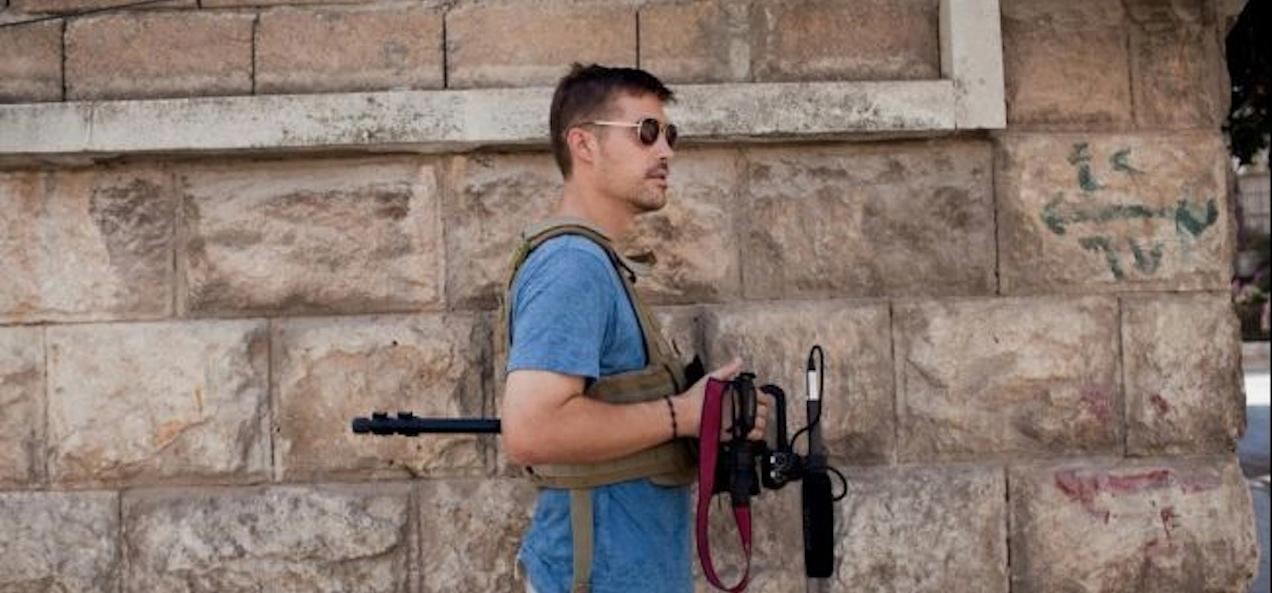Syria: US journalist still missing
American journalist James Foley.
BOSTON, Mass. — More than two months have passed since armed gunmen abducted American journalist James Foley in northern Syria, where he was reporting for GlobalPost and other news organizations.
Today, there is still no definitive news about his exact whereabouts or what group is responsible.
The lack of information is deeply frustrating for the Foley family, which has taken to the media in recent weeks in the hopes the captors may come forward.
“From our end, we are basically praying,” said John Foley, James’s father. “We have several prayer vigils scheduled and we find that to be very comforting. We are also working to schedule some additional interviews that could have an impact. Our biggest fear is that Jim’s situation will be forgotten.”
Foley, 39, was last seen on Nov. 22 in Idlib Province, the scene of heavy fighting between Syrian rebels and government forces.
A freelance journalist and veteran of conflict zones, Foley has most recently contributed to GlobalPost and Agence France-Presse (AFP). Foley’s family has made regular appeals in the media — and set up a website — seeking information and support for his release.
“We’ve had a few potential leads, but nothing yet has come of them,” John Foley said.
Foley previously wrote for GlobalPost in Afghanistan, Libya and Syria. In April 2011, while on assignment for GlobalPost, forces loyal to Libyan leader Muammar Gaddafi captured Jim in the eastern part of the country. Two other journalists, American Clare Gillis and Spaniard Manu Brabo, were also captured. A fourth journalist, South African Anton Hammerl, was killed. Foley, Gillis and Brabo spent 44 days in Libyan prisons before being released. Foley later returned to Libya to cover Gaddafi's fall.
Foley has written for GlobalPost periodically since then, including from Syria. His last article for GlobalPost detailed the growing frustration among civilians in Aleppo — Syria's largest city — with the ongoing conflict.
Foley’s father said he draws hope not only from prayer, but also from his son’s strength of character.
“People always ask if Jim is crazy for going back to these places. The truth is he has a real dedication to telling the story of those affected by the conflict on both sides,” he said. “Jim is saddened by the suffering in Syria. He’s a journalist, but he’s also a humanitarian.”
“He cares for all sides, and he wants to tell the whole story. The last thing he wanted was to become part of the story himself.”
GlobalPost CEO Philip S. Balboni said the news company has led a significant international effort to secure Foley’s release, working in close collaboration with the Foley family and with other news organizations that have personnel in Syria, most notably AFP.
“This effort continues literally all day every day of the week,” Balboni said, “and we intend to continue to pursue every avenue to bring Jim home safely.”
AFP meanwhile said it delivered a letter Monday evening to Syrian Information Minister Omran al-Zohabi seeking assistance in finding Foley.
AFP said the minister promised to do all that was possible but that “conditions are difficult” in the region where Foley was kidnapped.
Foley had set off toward the Turkish border in a car about an hour before his capture. A Syrian witness later recounted over the phone to a journalist in Turkey that an unmarked car intercepted Foley. The witness said men holding Kalashnikovs shot into the air and forced Jim out of the car.
The witness said he noticed nothing that would indicate whether the aggressors were rebel fighters, individuals looking for a ransom, members of a pro-government militia or a religious-based group with other motives.
The Syrian conflict, initially a peaceful uprising demanding government reform, turned violent in April 2011 when Syrian President Bashar al-Assad turned his security forces on protesters. Rebel fighters made up of civilians and defected Syrian army soldiers soon began to fight back. The conflict has since taken a dark turn as foreign governments and foreign extremists pour money, weapons and personnel into the country — all sides fighting for different ends.
In 2012, Syria was one of the most dangerous places in the world for reporters, according to the Committee to Protect Journalists. The organization recorded 28 deaths in 2012, along with numerous kidnappings.
American journalist Austin Tice has also been missing since Aug. 13. A video surfaced on Oct. 1 that appeared to show Tice in the custody of foreign Islamic fighters. But the video's authenticity has been questioned. The US State Department has asked the Syrian government to be “more forthcoming” with information about the missing journalist. But the Syrian government says it has no information about Tice's whereabouts.
Our coverage reaches millions each week, but only a small fraction of listeners contribute to sustain our program. We still need 224 more people to donate $100 or $10/monthly to unlock our $67,000 match. Will you help us get there today?
